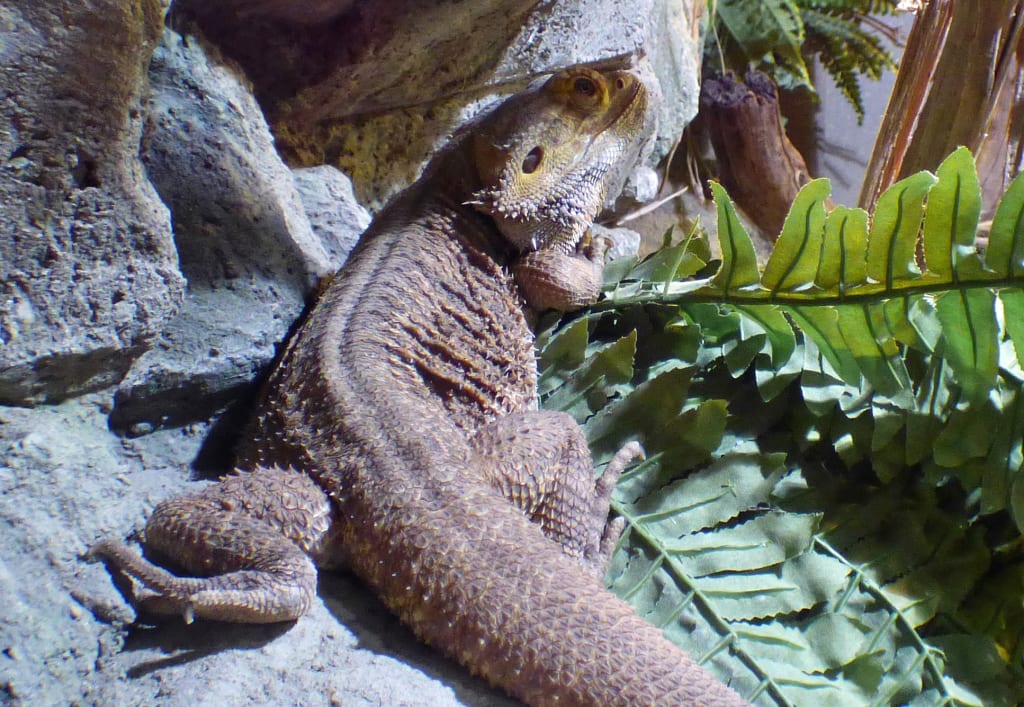As Exotic Pets Increase in Popularity, Neglect is a Growing Problem
The Reptile Rescue Centre in England

The RSPCA Reptile Rescue, in the south of England, opened in 2007 after it became apparent there was a need for a safe haven for unwanted and stray reptiles. Since then, hundreds of reptiles have been rescued, rehabilitated, and rehomed throughout the country.
The facility in Brighton, Sussex, takes in snakes, lizards, tortoises, invertebrates, and amphibians. In addition to rescue and rehoming, they have a waiting list of people seeking specific pets that are not currently available.
Neglect and mistreatment is a growing problem
As the popularity of owning exotic pets grows, so does the scale of neglect and inadequate care in reptile keeping. There are an increasing number of reptiles being kept as pets, often without the correct information being given about their care at the point of purchase. This results in many reptiles suffering through lack of knowledge or neglect. The RSPCA Reptile Rescue team aims to correct this by providing education to those people wishing to adopt reptiles and ensuring they cater for all the animals' needs.
This is the first RSPCA unit in the country dedicated to reptiles. Staff and volunteers at RSPCA Reptile Rescue offer advice by telephone, to help reptile owners understand the welfare needs of their reptiles, invertebrates, and amphibians, and to provide good quality care for their pets.
A chat with the staff
I spoke with Keith Wells, who works at the centre. "We take in reptiles that the owners can no longer care for, including those that require a DWA Licence, and we look for good, loving homes for the reptiles and amphibians in our care. We do sell reptile goods at the moment, but it would be nice to have a dedicated shop on the site where it can all be displayed properly.
"We have naturalistic set-ups for our long-term residents, but we keep the others in a minimalist, sterile environment. We have animals in and out all the time so we need to be able to clean it easily. If they're staying longer we'll try to give them a more natural environment."
What are the greatest challenges?
Keith explains that they have a constant list of animals waiting to come into their care. "But we are full to capacity and can only take in more animals if we manage to find adopters for our existing animals. The industry is getting huge and it's a big problem. Reptiles live a long time, and people just decide that they don't want them anymore. That's how 80% of our animals come in. We also get dumped animals in a box, field, or wherever.
"There was a black and white Tegu left in a flat in London and its owners had moved out and abandoned it. He's here with us now and he's here to stay. His name is Tarquin and we use him for education. We've also taken in bearded dragons and boa constrictors who were dumped in a box during winter. They've all found good homes."
The highlights
Keith enjoys working with the animals and says the rewards are getting them back to health and placing them in new homes. Some of them come in very thin and malnourished - in horrendous condition - but they get better, and that's a real highlight.
Locals donate vivariums or reptile equipment to the centre. The equipment is used to house rescue animals or sold to adopters. People also sponsor vivariums to support the RSPCA's work.
Mistakes people make
People often don't do their research properly before they buy a reptile. Keith explains, "They just take a pet shop's word as gospel, rather than doing their own research. They don't bother to find out how long their pet will live, how big it will grow, or about the handling required. Lots of people become scared of their pets. They just don't have a clue.
"People should do their research before they buy a reptile… and stop breeding bearded dragons and corn snakes. I can see that breeding is going to create a huge problem. We can't take any more in, but people think they can make money breeding them, so the trade continues."
"If you purchase a vivarium from the branch, we will make sure it is properly set up for you," says Keith. "If you have your own vivarium, we will ask to see pictures and we'll want to know the measurements as well as what heating, UV and thermostat you are using. All rehoming will be at the discretion of the rehoming officer, to ensure you adopt a suitable reptile for your lifestyle and experience, and a home visit may need to be carried out at any stage of the adoption process. All reptiles would need to be returned to the branch, if the adopter is longer able to keep them."
They also offer reptile boarding for when their customers are away on holidays.
During the pandemic, animal rehoming has been difficult, but this important centre continues to work on behalf of the animals in their care, nursing them back to health, securing good homes, and educating their new owners, so the pets can enjoy a happier life in their new forever homes.
To find out more about the animals, and adoption opportunities in the UK check out their website at www.rspcareptilerescue.co.uk
(Adapted from an article written by the author, Susie Kearley, which was previously published in Practical Reptile Keeping magazine in the UK)






Comments
There are no comments for this story
Be the first to respond and start the conversation.